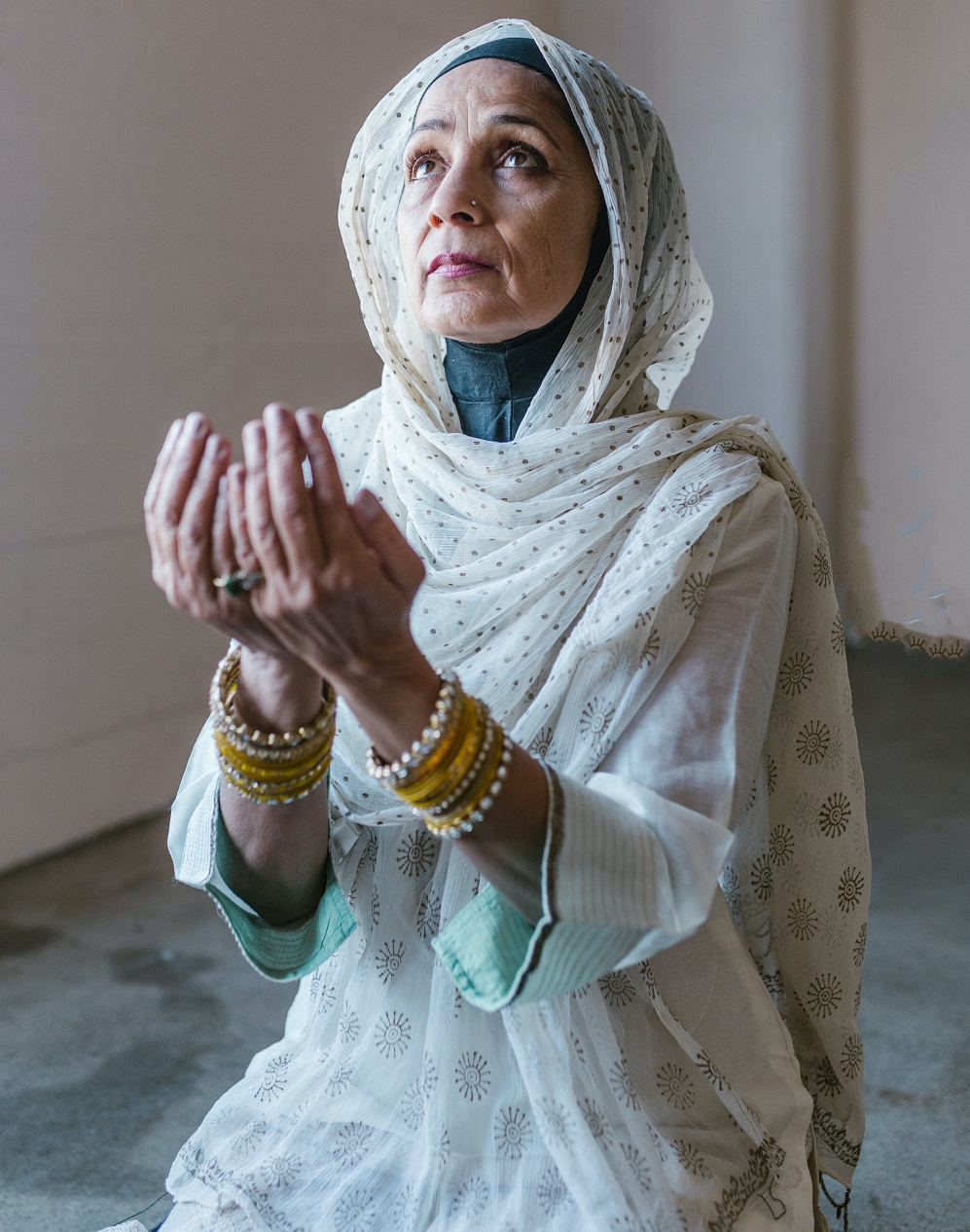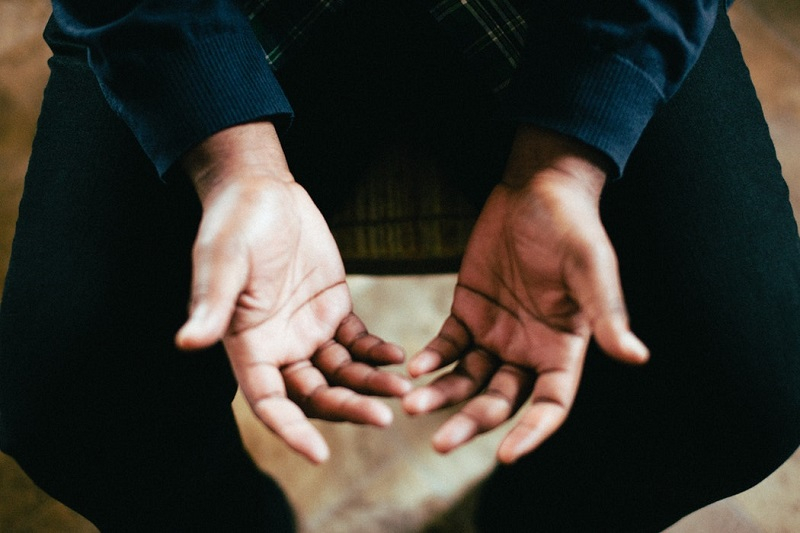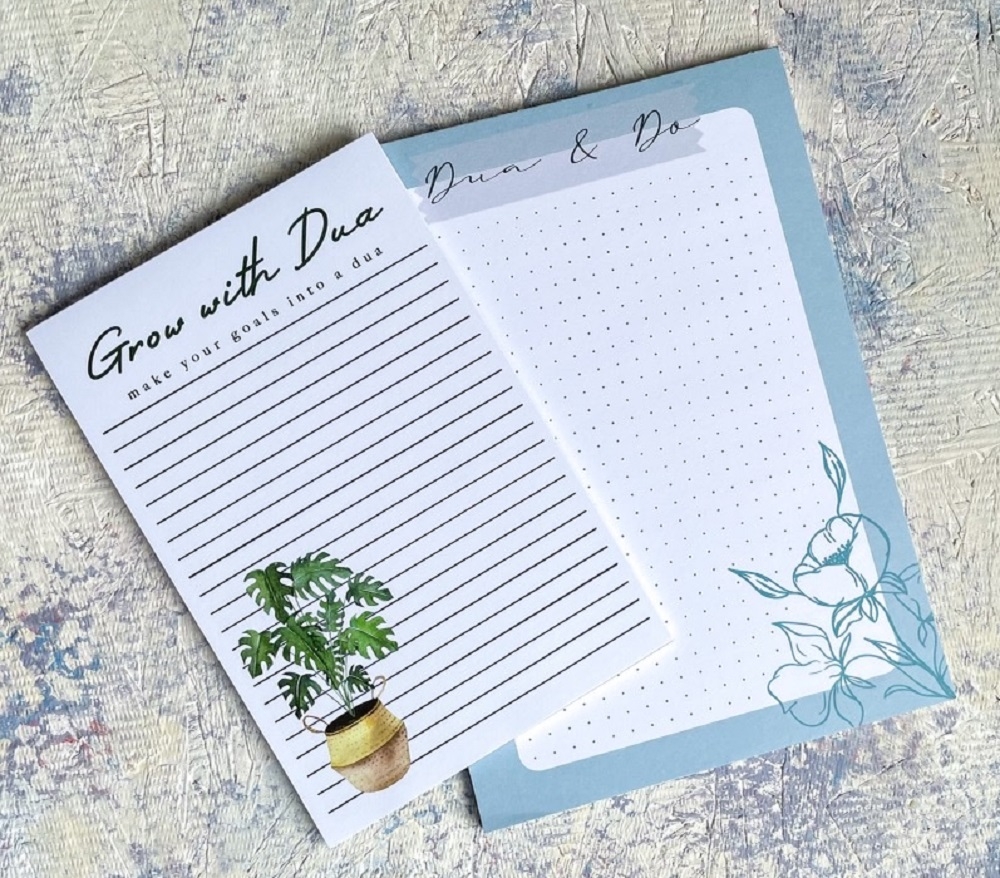Ya Allah (S) ... Then What? Here are 4 Ways You Can Gather Your Thoughts to Make Du'a
Faith
|
Apr 12, 2023
|
6 MIN READ

Image source: Pexels
Have you ever raised your hands up to make du’a but felt like your tongue is tied? Sometimes life brings us to a point where we find ourselves speechless, unable to articulate what we are feeling and what we need, even in front of the one who knows what our heart is carrying.
Sometimes this is enough – to come as you are, overcome with your emotions and unable to process, and just call out to the all mighty, “Ya Allah, Oh Allah!” Vulnerability is the key to getting closer to Allah (S) and opening up the doors of guidance.
Oh Allah (S), answer for us what we are unable to say and what is difficult for us to formulate while you know it. Oh Allah, and accept every invocation that is static in our chests, and we do not know how to say it to you.
Du’a is so important in our lives as Muslims. And during certain times, like when we're breaking our fast or travelling, we are taught that these are some of the best times that our du'as will be, Insha'Allah, be answered.
So how should we make du’a such that we’re able to ask for what we want to ask for and have full faith that Allah (S) is listening and WILL answer our prayers in a way that is best for us? Just like with all aspects of our religion, we turn to the Quran and sunnah to learn how to make dua, the best times to raise our hands and ask Allah (S) for what our heart desires, and the mannerisms around making du’a.
Having a framework in place is helpful in order to maximize our supplication. For example, it’s important to be aware of the best times to make du’a. While any moment in the day is an opportunity to raise our hands in supplication, we know from the hadith and sunnah that there are special times that are most beloved to Allah (S) for His servant to call upon Him: “And when my servants ask you about Me, then tell them I am near. I answer the call of every believer when they call upon me so let them also answer my call and believe in me so they may find rightful guidance.”[2:186]
So, if at the end of your salah or when you break your fast or when you pause in your day to make du’a and you don’t know how to go about it, remember these simple things, and know that Allah (S) knows your heart.
Mention Your Blessings First

Image source: Pexels
Showing our gratitude for Allah’s (S) blessings makes us from the few who remember to be aware of all the good Allah (S) has made accessible to us regardless of the hardships we are going through. "And few of my servants are grateful.” [34:13]
There is always something that is worth our Alhamdulliah. Our health, the delicious food we have to break out fast, the roof above our heads, and so much more that is taken for granted. Do you have water to sip? Alhamdulillah. Were you able to sleep at night? Alhamdulillah. Start making du’a by taking a moment to be mindful of all that is going well and the blessings you have is a healing and calming exercise that will set the perfect foundation for the rest of your du’a.
Allah (S) Is Your Greatest Confidant
When making du’a, it is from the manners of du’a to think positively of Allah (S) and to not attribute your hardships and any evil to Him. Again, we go back to the notion of thanking The Almighty for His infinite blessings upon us, and we want to come to Allah (S) in our most vulnerable state to confide in Him and complain to Him about our hardship and situation.
After all, Allah (S) is Al Aleem, Al Samee’, Al Baseer. The All Knowing, The All Hearing and The All Seeing. Think of Allah (S) as your closest companion, your confidant, the one who truly knows you better than you know yourself and is available to you at a moment's notice to hear your worries, your complaints and your heartache. And yes, you can complain and share your grief, despair and anger with Him without blaming Him.

Image source: Pexels
We see this form of du’a in the story of Prophet Yusuf (as), when his father, Prophet Yacoub (as), says to his sons in a moment where he is overcome with sorrow, “I only complain of my suffering and my grief to Allah.'' [12:86] It is important to remember that being vulnerable in front of Allah (S) does not mean we should feel unworthy of His mercy or ask Allah (S) why He has inflicted hardship on us. (And even if you do find yourself questioning Him in your most emotional moments, know that He knows your true intentions and how you are suffering.) Pour your emotions into your du’a and know that all good is in the hands of Allah (S).
Use Allah (S) Names and Attributes to Formulate Your Du’a
Diving into Allah (S) 99 names and attributes is a beautiful way to incorporate them into your du'a and beautify your supplication. We do this by connecting our need to one of the names and attributes of Allah (S), and then call to Him by that name. It is a sincere and truly intimate way of calling to Allah (S). Begin by praising Allah (S) by calling upon Him with a specific name and attribute. Then, follow His name(s) with a du’a based on the need you are asking for that is directly connected to His name and description you called upon.
For example, when asking for sustenance, we call out to Al Razzaq, The Sustainer, “Ya Razzaq.” We call out to the one who provides for us; and even in our moment of need, it’s important to include all that Allah (S) has already sustained us with. Once you start connecting your du’a to a name and attribute of Allah (S) that correlates to what you are asking for, you will find yourself always making du’a using this technique.
I highly suggest taking a few moments prior to making your du’a to be mindful of what it is you are trying to ask for, and be mindful of the names of Allah (S) that you would like to use. It’s also helpful to keep a du’a journal to keep all of your du’as in one easy accessible place for you to add on to. Think of your du’a journal as a collection of your du’a, including things you would like to ask Allah (S) for and a place where you can keepsake du’as from the Quran and hadith you come across and want to save for later.

Image source: Pexels
Personally, I treat my du’a journal as an idea board. I jot down new du’a’s that I learn. Before Ramadan, I try to make a du’a list that I can go back to whenever I want. The idea is to keep all of your thoughts and wishes in one place for easy access.
If you’re unfamiliar with the 99 names of Allah (S), take some time to go through the names and attributes and write down each of His names that correlates with each du’a you have written down. This will make your du’a process effortless when you are ready to raise your hands and connect with Allah (S). Writing down our du’’a keeps us mindful and spiritually connected to Allah (S), our blessings, our loved ones who have passed, and those who have asked us to make dua for them.
When All Else Evades You, Just Raise Your Hands Up and Beseech Allah (S)
Remember that making du’a is a conversation between you and your creator. There are no mediators between Allah (S) and His creation. Start with Ya Allah (S) and pour your heart out. Talk to Him about your situation and have faith that Allah (S) will answer the call of his servants, on His own time, when He sees it is fitting for us.

Image source: Instagram
Sh. Makaeel Ahmed Smith of the Qalam Institute shares in this Instagram reel how du'a doesn't need any formality or pretenses, saying "Raise your hands. Stop holding back. Stop looking around you – What's this dude gonna think? What's she gonna think? – Who cares. Time is running out. How long will you be so formal with God? He knows you before you know you. ... All He wants for you is to come back to Him."
As Sh. Omar Suleiman of the Yaqeen Institute says in this video on making du’a in Ramadan, “May Allah make us amongst those who always turn back to him with our hardships and thank him for our blessings and get closer to him in hardship and in ease, and may he make the best of our deeds last of them. May he allow our du'a to be accepted in Ramadan and beyond. And may he allow us to observe Laylatul Qadr.”
Ameen.
Subscribe to be the first to know about new product releases, styling ideas and more.
What products are you interested in?


